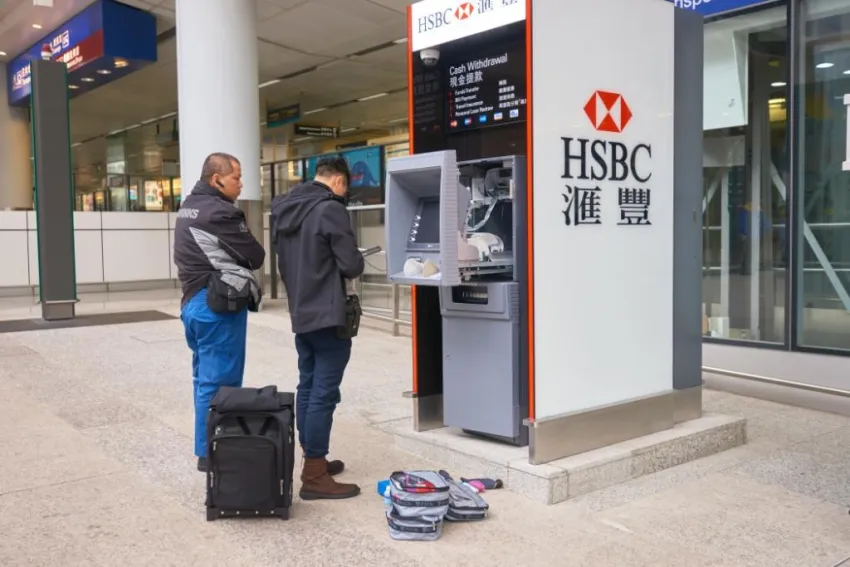
Hong Kong banks to benefit from subsiding asset pressure in 2018
The banks have emerged from a shallow episode of asset deterioration in 2016.
Moody's Investors Service has changed its outlook for Hong Kong's banking system to stable from negative, reflecting its expectation that the banks' operating environment will benefit from stronger global economic growth in the next 12-18 months.
"While high asset prices and private-sector leverage remain key latent risks in the banking system, these factors are mitigated by ongoing economic expansion and still accommodative monetary conditions over the outlook horizon," says Sherry Zhang, a Moody's analyst of the Financial Institutions Group.
Here's more from Moody's:
The Hong Kong economy has kept up its momentum this year, supported by the upswing in global economic activity and steady economic growth in the mainland. We expect the strong growth momentum to continue in 2018.
Hong Kong's monetary policies will mirror the tightening path of the US Federal Reserve as a result of the linked exchange rate regime, but the pace of tightening will be gradual. This is notwithstanding the recent increase in the HKD interbank interest rate (HIBOR), which was mainly attributed to IPO activities.
Credit growth in the next 12-18 months will be supported by continued economic growth and still low borrowing costs, says Moody's. The system's loan growth slowed to 2.3% in the third quarter from 5.4% in the second quarter and 4.6% in the first quarter, when both loans for use inside and outside Hong Kong registered strong growth.
At the same time, the banking sector's total mainland-related lending increased by 12% to HKD3,992 billion during the first half of 2017, or 45% of total system loans.
Asset performance should stabilize as banks have emerged from a shallow episode of asset deterioration in 2016, economic momentum has broadened and loan servicing costs remain low. The classified loan ratio for the whole banking sector was 0.83% at the end of June 2017, largely unchanged from 0.85% at the end of 2016. The banks' special mention loan ratio fell to 1.40% from 1.82% over the same period.
Moody's expects Hong Kong banks will retain their very strong capitalization over the next 12-18 months, supported by strong retained earnings and more stringent regulatory requirements. The average tangible common equity/risk-weighted assets ratio of the rated banks was 16.8% at 30 June 2017, and remains well supported by the system's internal capital general capabilities.
Funding and liquidity profiles remain sound, with the system well-funded to support potential credit growth in the coming 12-18 months. The system's RMB liquidity pool has also shown signs of stabilization, with RMB deposits rebounding by 2% in the third quarter of 2017 to RMB535 billion.
Profitability will remain stable, as the positive impact of rate hike will be gradual and partially offset by margin pressure on lending due partly to competition. Buoyant financial market conditions will also support fee-based income such as brokerage fees and loan-related fees.
Finally, Moody's expects government support will weaken because of Hong Kong's implementation of a revised resolution regime to minimize the cost of bank resolutions and protect public funds. The new statutory framework -- in force since July 2017 -- vests broad new resolution powers with the bank regulator, including the ability to bail in creditors, with rules on loss-absorbing requirements to follow in 2018.






![Lorem Ipsum [ABF 1]](https://cmg-qa.s3.ap-southeast-1.amazonaws.com/s3fs-public/styles/exclusive_featured_article/public/2025-03/a_hand_pointing_to_a_futuristic_technology_5b87c9d0e3_1.png.webp?itok=2w0y1WhS)


![Cross Domain [Manu + SBR + ABF + ABR + FMCG + HBR + ]](https://cmg-qa.s3.ap-southeast-1.amazonaws.com/s3fs-public/styles/exclusive_featured_article/public/2025-01/earth-3537401_1920_4.jpg.webp?itok=WaRpTJwE)







 Advertise
Advertise

